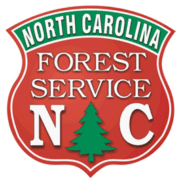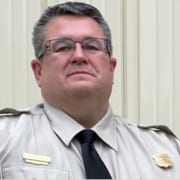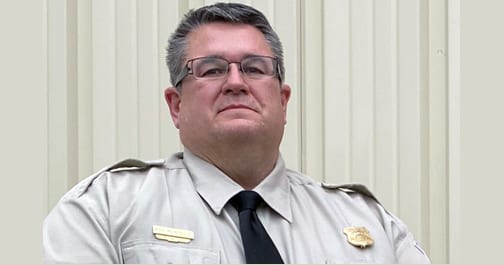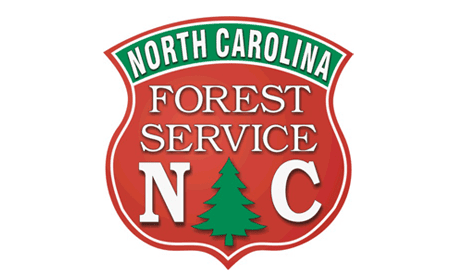Whether it’s excess rainfall or weekend ice storms in late winter, handling all that Mother Nature doles out requires flexibility and the “glass half-full” outlook. Although Rob Montague, area ranger with the NC Forest Service, can’t do much to prevent weather events, he can help area landowners create plans to best manage their resources.
Montague, area ranger for Vance and Granville counties, was named NC Department of Agriculture and Consumer Services 2020 Employee of the Year. He appeared on Monday’s Town Talk and discussed with host John C. Rose the importance of land management practices and how he and his team help landowners.
Montague said it was “a real honor” to be recognized for the award. “But my first thought was hey, there’s more involved here than just me,” he continued. The five-person office oversees fire control, forest management and education and Montague said they “work together as a team.”
The award was announced virtually by NC Commissioner of Agriculture Steve Troxler. A written statement from Troxler’s office said Montague was honored “for going above and beyond in his daily work, for personally responding to many of the emergency calls in his area and for being a valued resource in the local community.”
Building relationships within the community is something that Montague considers his biggest accomplishment. From helping individual landowners develop forest management plans to working alongside volunteer firefighters, Montague said so much of what he does would not be possible without the support he gets from his family.
Despite “weird” schedules and calls out in the middle of the night, family support for what he does and for what emergency responders do is critical, he said. He was among a small army of folks, no doubt, who cleared limbs and downed trees after the weekend ice storm. There are “excellent fire departments across both counties,” Montague said, and the firefighters are “awesome individuals. Some are paid and some are volunteers,” he added, “but there’s very little difference in how they do their job.”
Montague spends a chunk of time helping landowners formulate a forest management plan. Sometimes, owners simply want to preserve wooded areas for recreation or for conservation reasons. Other owners have stands of timber that will be used to generate income in the future. Montague said conservation is the wise use of resources, and he enjoys helping landowners determine the best way to manage their land. “In Granville and Vance counties, we are very heavily forested, so that means (there’s) quite a bit of work to be done. Forestry is very important to the economy of both counties,” he said.
A forest management plan is a landowner’s roadmap to guide and manage their forest resources for achieve their goals, he said. Knowing when to thin or harvest time, as well as planting new stands of timber are all part of the expertise he shares with landowners. There may be cost-share programs to help defray the cost of planting, thinning trees or doing herbicide work, he added.
“The biggest joy to me is just getting out and meeting people and giving assistance, Montague said. “We’re part of their tax dollars,” he said, adding that people appreciate the fact that he provides unbiased opinions and information. “We don’t have monetary gain for providing information,” he said, although his office can provide landowners with a list of contractors who specialize in particular areas of management practices.
The recent extended periods of wet weather have made it more difficult for logging crews to do their work, and landowners who own tracts that dry more quickly could reap economic benefits, he said. Finished lumber prices have spiked during the pandemic, Montague said, but little profit has trickled to the landowner thus far. The pine market fluctuates more than the market for hardwoods, he said, adding “the need for quality hardwood is going to always be there.”
Landowners should consider a minimum of 15 acres of timberland for investment purposes, Montague recommended, simply to make the jobs of thinning or harvesting a tract appealing to logging crews. But there are other steps that landowners can take before a stand of timber is harvested that can have a positive effect on the environment, he said.
He and his team educate landowners about soil and water conservation and wildlife habitat, but a favorite type of education occurs during the second week of October, he added. That is Fire Prevention Week – normally a time when the rangers visit schools to share Smokey Bear with elementary students. “Seeing their reaction to Smokey Bear is a really fun time of year for us,” he said.
In true “glass half full” fashion, Montague said the forest land in this area is in good shape. Although trees don’t like very saturated conditions, they tolerate drought conditions even less.
To learn more, visit www.ncforestservice.gov, phone the office at 919.693.3154, or send an email to Rob.montague@ncagr.gov.




